- Home
- Rick Mofina
Perfect Grave jw-3 Page 20
Perfect Grave jw-3 Read online
Page 20
Sister Marie lit several lanterns, which bathed the cabin in dark golden light, then began flipping though the yellowed handwritten pages of a notebook. From what Jason could see it was all in French.
“Your information is correct. I did oversee assessments and screenings of candidates for the period during which Sister Anne came to us as a candidate.”
As lightning flashed, Sister Marie paged through her book and Jason took notes.
“As I’d mentioned, many completed files were lost years ago in a fire. I took some notes, a summary if you will, on many of those that came through me. Sister Anne was approximately twenty-three years old when she came to us in Paris. She was born in St. Louis, Missouri, given up for adoption by her fifteen-year-old mother. She was adopted by a Kansas City bank manager and his wife, who were a childless couple. At age seventeen she was sent to private boarding school in Switzerland. Four years later her parents died in a car accident while en route to see her in Geneva. She was kept on at the school where she studied art and helped younger students. That’s what we were told.”
Sister Marie stopped, then resumed talking as she returned to the bookshelf for more notes.
“Our screening process was similar to that of many orders. The young candidates submit to psychological and medical tests, background checks, letters of reference.”
“Where is that file for Sister Anne?”
“Lost, I believe.” The old nun pressed a finger to her lips. “No. Maybe not. Now, as I recall, she didn’t go through all that. Just a moment.” Sister Marie found another notebook; its pages crackled as she leafed through it.
In the lamplight, beautiful French handwriting reflected in her glasses.
“Yes, it’s coming back now. The late Sister Beatrice Dumont made the discovery. Yes. It’s here.”
“What is it?”
“Sister Anne was first encountered in the back of a small church. A young woman, praying and crying, begging to be allowed to join the Order. At first, there were concerns about her psychological capacity. She was invited to volunteer at one of our missions. Over time, as she became known to Sister Dumont, it was understood that she was grieving the loss of her parents. The young woman was alone in the world and desperate for guidance. It seems that she bore the guilt of her parents’ deaths, as she had desired to attend the school. Later she wanted to leave it and had summoned her parents to come and arrange it.”
Jason weighed the revelation.
“Do you think this would account for the agonizing guilt she expressed in her diary?”
Sister Marie thought that it would.
“We gave it time and saw that she truly had felt a divine call to devote her life to helping others.”
Jason ruminated over the information.
“She was accepted eventually as a postulant for something like a year, as I recall. Then she became a novice and dedicated herself to her studies and went on to take her temporary vows. I think, in her case, it was close to five years before she took her final vows. And then she went off to various missions around the world.”
So that was it, Jason thought, a mundane explanation. Nothing at all that would point to her killer. No deep, dark secret. The part about “destroying lives” must’ve been her anguish and guilt at the loss of her parents.
“Is that everything, Sister?”
The old nun raised her head from her notebooks as the storm’s intensity decreased with the whisper of soft rain.
“No.” She turned to her bookshelf. “How could I ever forget? Please forgive my brittle mind.” She went to another book but failed to find what she was looking for, as Sassy threaded his way through her legs. She checked another, then another. “Oh, I’m sure it’s in one of these blessed books. I’ve got letters and notes scattered all over. I can never find anything.” She tapped her cane to the floor in frustration, sending her cat to the corner.
“What is it, Sister?”
“In the process of becoming a nun you take your vows, which include the big ones, like chastity and poverty. In practical terms, candidates divest themselves of all their worldly goods and come to God, poor in material wealth. It’s common for candidates to donate whatever they have to the Church or Order.”
“And this was the case with Anne Braxton?”
“Oh, yes, indeed. In fact her donation was critical to the Order’s initial success. It seems her father had made several wise investments, the proceeds of which she inherited from her trust at the age of twenty-five. It was held for her in a bank in Zurich, and she arranged to turn it over to the Order.”
“She turned her inheritance over to the Order?”
“Yes.”
“How much was it?”
“As I recall it was over two million Swiss francs.”
“Was that a lot, at the time?”
“At the time, that worked out to over one million U.S. dollars.”
Jason stared at the old nun.
Chapter Forty-Five
L eon Dean Sperbeck.
Henry Wade’s nightmare.
Sperbeck scowled at him from his DOC photographs, which Henry had propped against the salt and pepper shakers on his kitchen table in his house near Boeing Field.
There was Sperbeck glaring at him, just as he did so long ago during the horrific standoff at the heist.
The terrified eyes of the hostage.
Later, Sperbeck eyed Henry in court as he shuffled off in chains to pay with twenty-five years of his life.
Was it enough for what he did?
Sperbeck’s image had tormented Henry the day Vern Pearce put his gun in his mouth and pulled the trigger. It had invaded Henry’s sleep, enveloping him like a burial cloth for his years of descent into an alcoholic abyss. And it had mocked Henry the day Sally walked out because she couldn’t take it anymore.
Henry didn’t blame her.
He blamed Leon Sperbeck.
But was he truly dead?
Henry resumed looking over the files that Ethan Quinn had copied for him. DOC records, court records, old police reports.
Is this how it ends? With Sperbeck’s suicide robbing Henry of the chance to find the answer to the one question that had locked Henry in a prison of pain and continued to haunt him.
Was he really dead?
Like Quinn, Henry needed to be certain Sperbeck was dead.
It was critical to his own survival.
Sperbeck’s suicide note wasn’t much evidence, Henry agreed with Quinn. Until the Nisqually River gave up Sperbeck’s corpse, and an autopsy confirmed it was him, all bets were off.
Okay, so what’s it going to be?
One way or another, Henry had to come to terms with this thing. It was what his counselors had advised him for over twenty-five years. Twenty-five years. Damn. Henry admitted that a drink would feel good right now.
But it wouldn’t help.
All right.
The time for battle had come.
He went back to his files and outlined a plan to investigate. He’d treat Quinn like a client who required verification of Sperbeck’s death. Henry began by putting in several calls to sources, reminding himself that he was a detective, licensed by the state to conduct private investigations, and, if necessary, authorized to take a life.
He glanced at his new Glock 22.
He’d picked up the. 40-cal pistol late yesterday after he got his letter from the state and completed all the paperwork. Having it around made him uneasy.
He hated the thing.
Hope to God I never have to use it.
Get to work.
First, Henry checked with the NPS Rangers at Mount Rainier National Park on whether they’d found Sperbeck’s body.
“Naw. Nothing’s turned up,” Pike Thornton, a law enforcement officer, told him over the phone. “We sent out Search and Rescue, dragged the river near Cougar Rock, and got nothing.”
“Any witnesses see him go in the water?”
“None that were absolutely certai
n. We had a retired county judge say he saw Sperbeck fishing. We found his pole, tackle, and such.”
“What about his vehicle?”
“He told the registration desk that he got a ride from Seattle. No one saw him or spoke to him. Seemed to be a man alone with his thoughts.”
Awaiting return calls, Henry went back to Sperbeck’s DOC file, which was extensive. Sperbeck had entered the system at WCC, where he was processed and sent on to Washington State Penitentiary at Walla Walla. He spent a lot of time making license plates there. Then he was transferred to Coyote Ridge at Connell, where he received treatment for his addictions while working on the farm.
At Coyote Ridge, Sperbeck also took part in spiritual counseling programs run by groups who visited from across the state. Afterward, he went to Clallam Bay, where he picked up a trade, cabinetmaking, before moving on to McNeil Island, but unlike many offenders, he did not work outside on the barges, tugboats, and ferries.
Even though he qualified for work release and to seek parole, he waived it all, choosing to serve his full time and work toward discharge, reducing the number of strings the system would attach to him.
“Sperbeck had very few conditions of supervision,” Herb Kent, Sperbeck’s CCO, told Henry when he finally reached him. “He stayed out of trouble inside and paid his debt in full. There was no indication he was a risk to reoffend.”
“Did he talk about the crime?”
“You mean the money?”
“I mean the money.”
“Not a word. He expressed remorse over the damage he’d inflicted.”
“Did he have any kind of support mechanism waiting for him outside-friends, relatives?”
“Not really.”
“What about his visitor list?”
“Spiritual counselors, some teachers, vocational advisors. No family or friends from his past to indicate he was going to reconnect.”
“What do you make of his suicide?”
“It happens, Henry. Especially with long-timers. Guys get out to find that the world has changed. That there’s no place for them in it. They can’t go back to prison. So what’s left for them? Sperbeck had a skill but couldn’t get a job. He called me a couple of times, all despondent. He was slipping back into drugs, circling the drain.”
Kent gave Henry two Seattle addresses that he had for Sperbeck. One was a run-down motel at the edge of Capitol Hill, the other a rooming house close to the ID, the address he was using when he vanished into the Nisqually River.
Henry got in his pickup truck and did some discreet door-knocking. He showed people Sperbeck’s picture, which yielded mostly head-shaking, except at the Black Jet Bar, which was near the rooming house.
“I saw that guy a few times. He used to sit in the back. Very quiet. No trouble,” the bartender told Henry. “But that cracker was not in great shape. Once he complained about how everybody in the world owed him for what he did.”
“That right? And what did he do?”
“He did not elaborate.”
Henry was making notes. “He happen to mention who ‘everybody’ was? Any names?”
The bartender stuck out his bottom lip and shook his head. “People say a lot of things when they’re drinking.”
Henry was acutely aware of that.
“Anything else you can remember about him?”
“I heard he used to go to the shelter for meals. I told him to get himself a welfare check and a medical card and see a doctor. Clean himself up.”
After thanking the bartender, Henry chided himself for nearly forgetting a basic. It was common for ex-cons to apply for welfare while they searched for a job. Stepping out of the Black Jet, he called an old friend who was a welfare fraud investigator at the Department of Social and Health Services.
“Roland King, Division of Fraud Investigations.”
“Rollie, it’s Henry Wade.”
“Hey, pal. Look, you caught me leaving for court. I have to go.”
“Just need a second. Can you help me with a quick check on somebody?”
“Ah, Henry you’re going to make more work for us. I know it. And we’re already way over our heads as it is. Want to work for DFI?”
“Just want to make you look good.”
“I’ve got about two minutes here. What is it?”
Henry gave him Leon Sperbeck’s information, his SSN, his date of birth, known addresses.
“Was he ever a client? That’s all I’m asking, Rollie.”
Henry could hear King typing on a keyboard as he double-checked Henry’s info. As a welfare fraud investigator, King had access to nearly all of the department’s computerized databases.
“What’s the beef, Henry? This guy cheating?” King asked as he waited for the computer to respond to his queries.
“Not sure.”
“Here we go. Yes. I can confirm, confidentially, that he’s in our system. He’s got a medical card. And we have him on General Assistance Unemployable. His status as an ex-convict armed robber presents a challenge in his effort to find a steady job. That it? Because I really have to go.”
“Anything else, there? What about the addresses?”
“Henry, I have to go. Wait, what addresses did you have?”
Henry repeated the two he’d checked.
“Nope, I think there’s a couple more. Got a pen?”
Henry took them down. Then heard King typing and cursing under his breath.
“That’s not right,” King said.
“Find something?” Henry asked.
“We just started sending checks for a new client at one of Sperbeck’s addresses. The client’s got a different name, but the very same address as Sperbeck. Damn it. I knew it, Henry, you brought me more work.”
“So you think Sperbeck’s received a check using an alias?”
“Happens all the time.”
“Tell me something. When was the last check cashed?”
“Looks to me like two days ago.”
Chapter Forty-Six
T hat guy in the park was weird.
But Brady Boland never told his mom about his encounter the other day because he figured it was no big deal.
Right. If it was no big deal why was he still thinking about it?
Because the guy had made him nervous, especially after Justin and Ryan said they’d seen him before.
“I saw him lurking around here a couple days ago,” Justin said.
“Maybe he’s a perv,” Ryan said.
“Maybe he’s some creepy weirdo who likes to say stupid things to kids,” Brady said. “Who knows? Who cares?”
Brady did.
That’s why he was still thinking about it, here alone in his room today, while his mom was in the kitchen doing stuff. Brady would never ever tell anyone that the stranger had scared him a bit. That the incident made him miss having his dad around to protect him and his mom-but to admit it would make him some sort of baby.
But the truth was he missed his dad.
The truth was, that it wasn’t always bad with his dad. Most of the time it was great. What Brady liked best was when he went out on landscaping jobs with him. His dad was teaching him how to drive the rider mower, showing him how to cut in patterns. And he was teaching him about planting, about soil. About how to make it all look “professional.”
Every job they went on his father was always digging, “digging deep.” And always saying how important it was to give plants, flowers, shrubs, trees, whatever, “lots of plant food.”
Brady loved helping him bury the nutrients. They came in capsules, pellets, spikes, and bricks wrapped in plastic. He loved digging and spreading the rich, dark soil. And it really worked. In the end, it always looked great. Those were the happiest times with his dad before things started going bad.
In the time before he died, his dad always seemed to be under a lot of pressure. Always worrying about stuff he’d never talk about. He got angry all the time. Lost his temper.
And hit him.
&nbs
p; Brady hated how things got so bad.
One time something happened that he never told his mom about. Once, after a bad time, Brady’s father took him aside and privately warned him.
“You listen to me. You keep your goddamn mouth shut about anything that goes on in this house! People are looking for me. Bad people. You do not speak one word about anything! Understand?”
Brady didn’t understand.
Nothing made sense back then.
And nothing made sense now with the creep in the park saying weird crap.
And nothing made sense about having a stupid tumor in your head trying to kill you while your mom was always on the phone, crying and going through papers and files and junk.
And nothing made sense when sometimes he woke up in the night wondering what it would be like to be dead and how he would miss his mom, miss Justin and Ryan.
Just quit it.
Brady got up from his bed and told himself to stop worrying like a baby.
He went to his window and looked up and down the street.
Besides, Justin made the shot.
Which meant everything was going to be fine.
Brady continued scanning his street, looking for anything strange.
Anything at all.
Chapter Forty-Seven
S omething about the shoes gnawed at Kay Cataldo.
It had cost her a night’s sleep, had compelled her to get to her crime lab just after dawn and tear through her files.
It’s the shoes. Think, Cataldo! Think!
John Cooper possessed used tennis shoes issued to offenders by the Department of Corrections. But they were not the shoes that had made the impressions at Sister Anne’s murder scene. That ruled him out.
Okay, but she’d seen that pattern recently in another open file.
Hadn’t she?
Yes.
But where? Where, damn it? She struggled to retrieve it from her memory and her computer, gulping coffee while searching her files. Something blurred by.
Stop.
This one.
Sharla May Forrest.
The teen hooker.

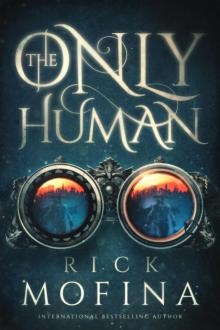 The Only Human
The Only Human Tom Reed Thriller Series
Tom Reed Thriller Series![[Tom Reed and Walt Sydowski 04.0] No Way Back Read online](http://i1.bookreadfree.com/05/tom_reed_and_walt_sydowski_04_0_no_way_back_preview.jpg) [Tom Reed and Walt Sydowski 04.0] No Way Back
[Tom Reed and Walt Sydowski 04.0] No Way Back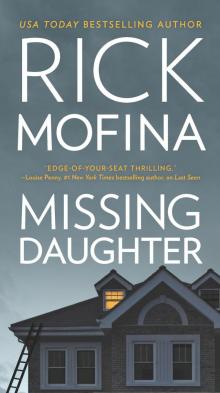 Missing Daughter
Missing Daughter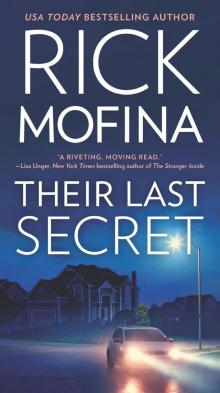 Their Last Secret
Their Last Secret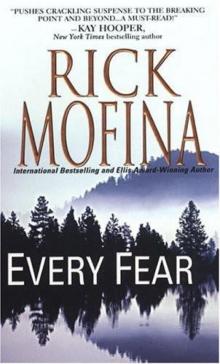 Jason Wade - 02 - Every Fear
Jason Wade - 02 - Every Fear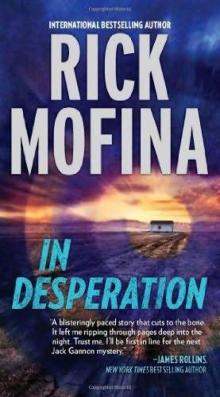 In Desperation
In Desperation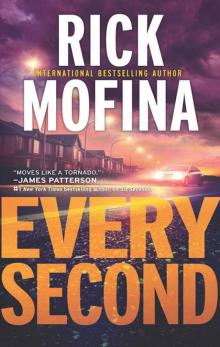 Every Second
Every Second Full Tilt
Full Tilt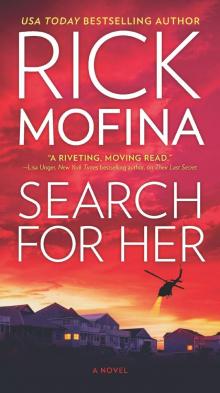 Search for Her
Search for Her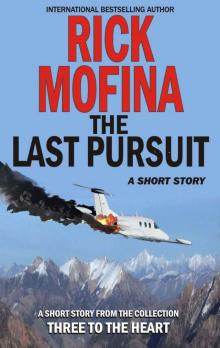 The Last Pursuit
The Last Pursuit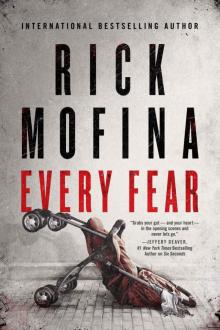 Every Fear
Every Fear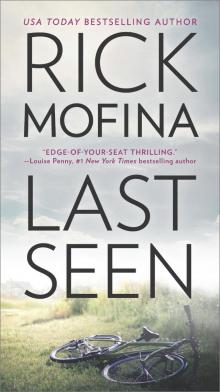 Last Seen
Last Seen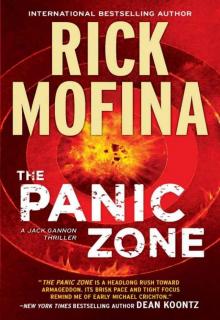 The Panic Zone
The Panic Zone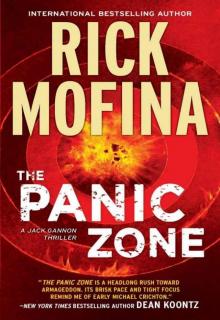 The Panic Zone jg-2
The Panic Zone jg-2 Free Fall
Free Fall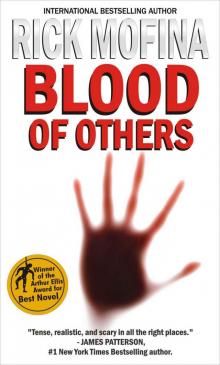 Blood of Others
Blood of Others![[Jason Wade 02.0] Every Fear Read online](http://i1.bookreadfree.com/i1/03/31/jason_wade_02_0_every_fear_preview.jpg) [Jason Wade 02.0] Every Fear
[Jason Wade 02.0] Every Fear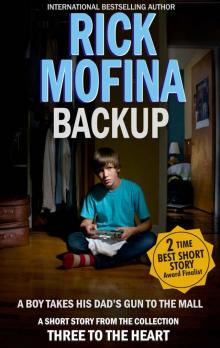 Backup
Backup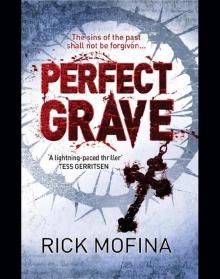 Perfect Grave
Perfect Grave Into the Dark
Into the Dark Whirlwind
Whirlwind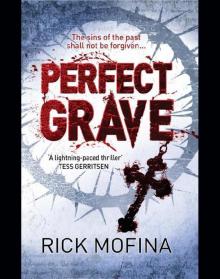 Perfect Grave jw-3
Perfect Grave jw-3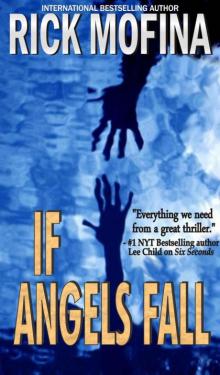 If Angels Fall (tom reed and walt sydowski)
If Angels Fall (tom reed and walt sydowski)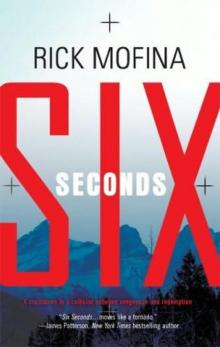 Six Seconds
Six Seconds If Angels Fall
If Angels Fall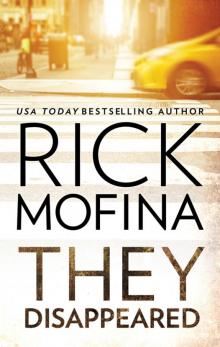 They Disappeared
They Disappeared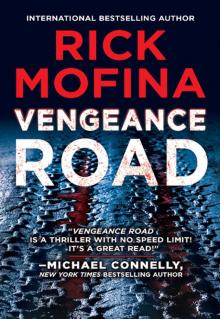 Vengeance Road
Vengeance Road Before Sunrise
Before Sunrise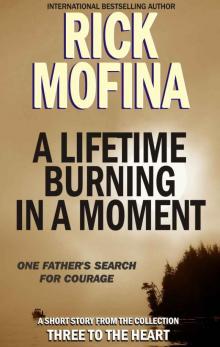 A Lifetime Burning in a Moment
A Lifetime Burning in a Moment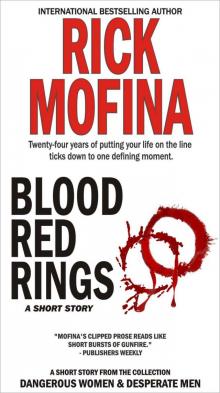 Blood Red Rings (Dangerous Women & Desperate Men)
Blood Red Rings (Dangerous Women & Desperate Men) As Long As We Both Shall Live (Dangerous Women & Desperate Men)
As Long As We Both Shall Live (Dangerous Women & Desperate Men)![[Tom Reed and Walt Sydowski 01.0] If Angels Fall Read online](http://i1.bookreadfree.com/i2/04/12/tom_reed_and_walt_sydowski_01_0_if_angels_fall_preview.jpg) [Tom Reed and Walt Sydowski 01.0] If Angels Fall
[Tom Reed and Walt Sydowski 01.0] If Angels Fall Cold Fear
Cold Fear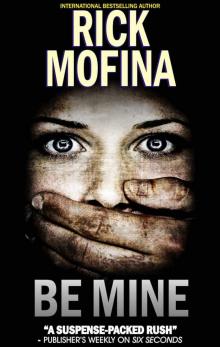 Be Mine
Be Mine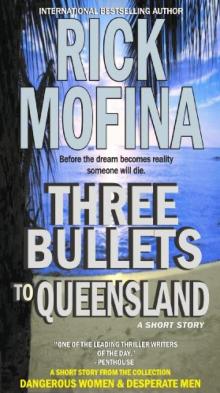 Three Bullets To Queensland
Three Bullets To Queensland